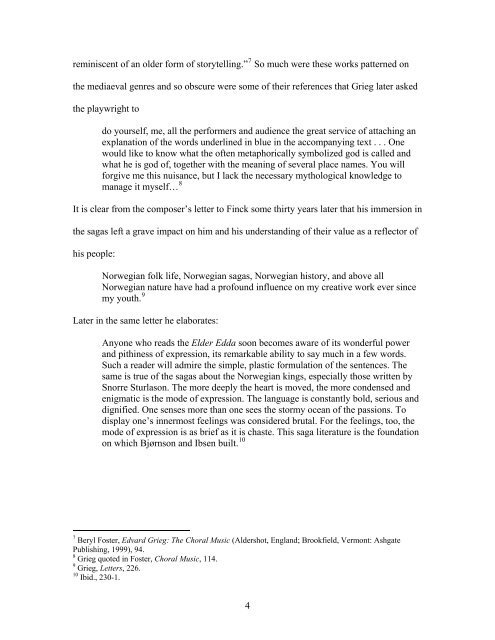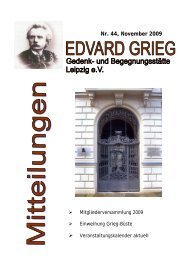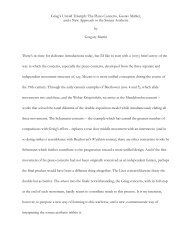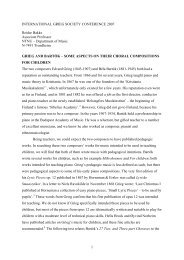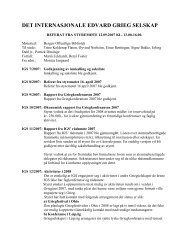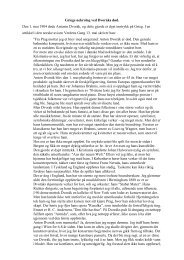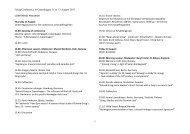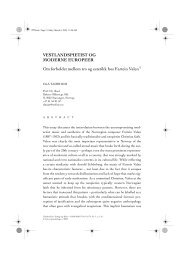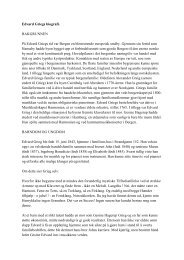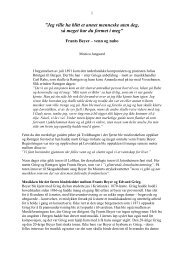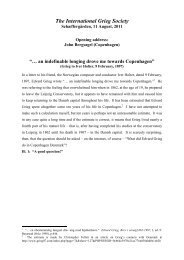Gregory Martin - paper 2007 - Grieg Society
Gregory Martin - paper 2007 - Grieg Society
Gregory Martin - paper 2007 - Grieg Society
Create successful ePaper yourself
Turn your PDF publications into a flip-book with our unique Google optimized e-Paper software.
eminiscent of an older form of storytelling.” 7 So much were these works patterned on<br />
the mediaeval genres and so obscure were some of their references that <strong>Grieg</strong> later asked<br />
the playwright to<br />
do yourself, me, all the performers and audience the great service of attaching an<br />
explanation of the words underlined in blue in the accompanying text . . . One<br />
would like to know what the often metaphorically symbolized god is called and<br />
what he is god of, together with the meaning of several place names. You will<br />
forgive me this nuisance, but I lack the necessary mythological knowledge to<br />
manage it myself… 8<br />
It is clear from the composer’s letter to Finck some thirty years later that his immersion in<br />
the sagas left a grave impact on him and his understanding of their value as a reflector of<br />
his people:<br />
Norwegian folk life, Norwegian sagas, Norwegian history, and above all<br />
Norwegian nature have had a profound influence on my creative work ever since<br />
my youth. 9<br />
Later in the same letter he elaborates:<br />
Anyone who reads the Elder Edda soon becomes aware of its wonderful power<br />
and pithiness of expression, its remarkable ability to say much in a few words.<br />
Such a reader will admire the simple, plastic formulation of the sentences. The<br />
same is true of the sagas about the Norwegian kings, especially those written by<br />
Snorre Sturlason. The more deeply the heart is moved, the more condensed and<br />
enigmatic is the mode of expression. The language is constantly bold, serious and<br />
dignified. One senses more than one sees the stormy ocean of the passions. To<br />
display one’s innermost feelings was considered brutal. For the feelings, too, the<br />
mode of expression is as brief as it is chaste. This saga literature is the foundation<br />
on which Bjørnson and Ibsen built. 10<br />
7 Beryl Foster, Edvard <strong>Grieg</strong>: The Choral Music (Aldershot, England; Brookfield, Vermont: Ashgate<br />
Publishing, 1999), 94.<br />
8 <strong>Grieg</strong> quoted in Foster, Choral Music, 114.<br />
9 <strong>Grieg</strong>, Letters, 226.<br />
10 Ibid., 230-1.<br />
4


